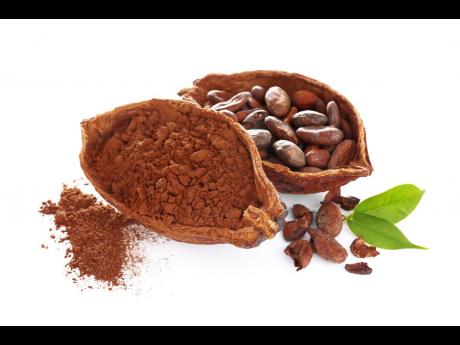Jamaica’s production and export of cocoa
Another tale of missed opportunities
I continue this week to take a closer look at the state of other export crops, focusing on cocoa.
The International Cocoa Organization (ICCO) ranks Jamaica among the 17 countries producing fine and flavoured cocoa and one of eight exclusive producers of fine and flavoured cocoa. This is on the website of the Jamaica Agricultural Commodities Regulatory Authority (JACRA).
The world price of cocoa is currently quite high. Jamaica’s cocoa has strong demand. What is the problem? Jamaica does not produce enough cocoa for export. In fact, production has declined.
Reading the history of cocoa production in Jamaica, apart from sugar, it is possibly one of the crops cultivated over the longest period in Jamaica. It originated in Central America and was cultivated by the Spanish in Jamaica from the 16th century. It moved from being a plantation crop under the British up to the 19th century to becoming largely a small farmers’ crop.
Attaining the fine flavour standard in the 1950s with the establishment of fermentaries and with improved prices, the Cocoa Industry Board was established in 1957 with the mandate of developing and controlling all aspects of the industry. This meant improving the quantity and quality of cocoa produced in Jamaica. The aim was to increase the acreage in cocoa from 14,000 acres in 1957. In 1967, 16,000 additional acres were cultivated, but the yield was poor, due to the intermixing with other crops.
A cocoa rehabilitation programme was launched in 1969 aimed at doubling the quantity of cocoa produced. This did not go according to plan either for various reasons, including inclement weather, and production remained below target. It was not until the 1990s that production began to steadily improve.
This should have been a happy ending for this sector.
However, the ebbs and flows have continued in production, which some have attributed to poor management. It seems that in the 1990s, Jamaica produced an average of about 2,000 tons of cocoa with the aim of further increasing this to double this amount. This has not materialised, in spite of a few success stories. In fact, the state of the sector has become more alarming since about 2015 when the frosty pod disease was diagnosed.
PRODUCTION CRISIS
In the five years from 2018 to 2022, figures online show Jamaica’s production averaging less than 300 tonnes per year down from over 1,000 tonnes.
Jamaica’s export earnings have fluctuated through the years. Up to about 2014, earnings would have averaged just below US$2 million. Between 2018 and 2022, export earnings averaged about US$333,000. Exports are mainly to Netherlands, France, UK, Germany and USA. The figures tell the story of the current state of cocoa production and export in Jamaica at a time when world demand and prices are at record highs.
Mr Lenworth Fulton, president of the Jamaica Agricultural Society (JAS), has been speaking to the crisis in cocoa production due to “the devastating frosty pod disease, ageing cocoa plants, and significant financial barriers faced by farmers seeking loans for rehabilitation”. He seems optimistic that the sector can be revived, calling for a comprehensive replanting programme, coupled with improved disease control measures.
It would also seem that cocoa needs to be grown on larger farms, possibly going back to the times when cooperatives were promoted.
This is clearly a crop with the potential for growth in the export of beans and for use in value-added products. The health benefits of dark chocolates have been lauded. Cocoa oil and butter are used in cosmetics. I recently noted that cocoa butter was not available in local pharmacies.
Cocoa is clearly another agriculture export crop in crisis, which, if not handled properly, with the necessary education and support for farmers, and investment in research and development, will definitely be part of the country’s past and not its future.
Elizabeth Morgan is a specialist in international trade policy and international politics. Email feedback to columns@gleanerjm.com

